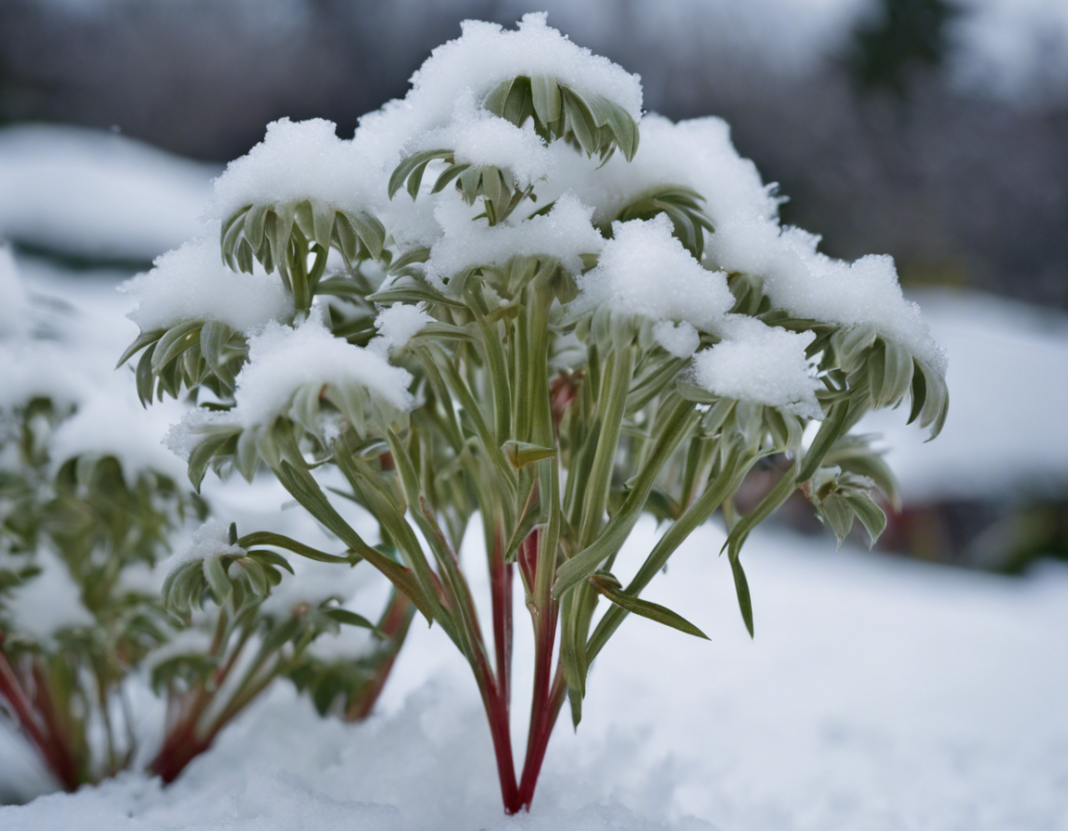Introduction
Snow weed, also known as “frost weed” or “winter weed,” is a fascinating plant that thrives in cold climates. This cold-hardy plant is known for its unique characteristics and uses. In this comprehensive guide, we will delve into the world of snow weed, exploring its various aspects including its characteristics, cultivation, uses, and benefits.
Characteristics of Snow Weed
Snow weed, scientifically known as Petrophytum caespitosum, is a perennial herbaceous plant that belongs to the Rosaceae family. It is a small, low-growing plant with clustered rosettes of evergreen leaves that are covered in fine hairs. The leaves are spoon-shaped and have a silvery-green color, which gives the plant a frosted appearance, hence its common name “snow weed.”
Cultivation of Snow Weed
Snow weed is primarily found in cold, mountainous regions with well-drained, rocky soils. It is well-adapted to harsh winters and can tolerate freezing temperatures. In cultivation, snow weed prefers full sun to partial shade and soil that is sandy or rocky with good drainage. It is a low-maintenance plant that requires minimal watering once established.
Uses of Snow Weed
Snow weed has several uses ranging from ornamental to medicinal. In gardens, snow weed is often grown for its aesthetic appeal, adding a touch of silver-green color to rock gardens, borders, and alpine plantings. The plant’s low-growing habit and tolerance to cold make it a popular choice for winter landscapes.
Medicinal Benefits of Snow Weed
Snow weed has a long history of medicinal use among indigenous peoples. The plant contains compounds that have been shown to possess anti-inflammatory, antioxidant, and immune-boosting properties. Snow weed is often used in herbal remedies to alleviate respiratory conditions, such as coughs and colds, as well as to support overall immune health.
Culinary Uses of Snow Weed
In addition to its medicinal properties, snow weed is also edible and has culinary uses. The leaves of the plant can be harvested and added to salads or used as a garnish to dishes. Snow weed has a slightly bitter flavor, which can add a unique taste to culinary creations. It is important to harvest snow weed from clean, pesticide-free areas to ensure its safety for consumption.
Growing Snow Weed in Your Garden
If you are interested in growing snow weed in your garden, there are a few key tips to keep in mind. As mentioned earlier, snow weed prefers well-drained soils and full sun to partial shade. When planting snow weed, ensure that the roots are not planted too deeply, as this can lead to root rot. Water the plant sparingly, especially during the winter months, to mimic its natural habitat.
Benefits of Snow Weed for the Environment
Snow weed not only has aesthetic and medicinal value but also provides several environmental benefits. As a cold-hardy plant that can withstand harsh winters, snow weed helps stabilize soils in mountainous regions, preventing erosion. Additionally, the plant’s ability to thrive in cold climates makes it a valuable resource for biodiversity in alpine ecosystems.
FAQs (Frequently Asked Questions)
- Is snow weed easy to grow in home gardens?
-
Snow weed is relatively easy to grow in home gardens, especially in cold climates with well-drained soils and adequate sunlight.
-
Can snow weed be used as a ground cover plant?
-
Yes, snow weed’s low-growing habit makes it an excellent ground cover plant for rock gardens, borders, and alpine landscapes.
-
Are there any precautions to take when consuming snow weed?
-
It is recommended to harvest snow weed from clean, pesticide-free areas and to consume it in moderation to avoid potential adverse effects.
-
How can snow weed be propagated?
-
Snow weed can be propagated through division or by collecting and sowing its seeds in suitable growing conditions.
-
Does snow weed attract wildlife to gardens?
- Snow weed is not known to attract wildlife significantly, making it a suitable plant for gardens where wildlife attraction is not desired.
Conclusion
Snow weed is a versatile plant with unique characteristics and uses that make it a valuable addition to gardens and landscapes. From its aesthetic appeal to its medicinal benefits, snow weed offers a range of advantages to gardeners, herbalists, and environmental enthusiasts alike. By understanding how to cultivate and utilize snow weed effectively, you can explore the beauty and benefits of this cold-hardy plant in your own backyard.


